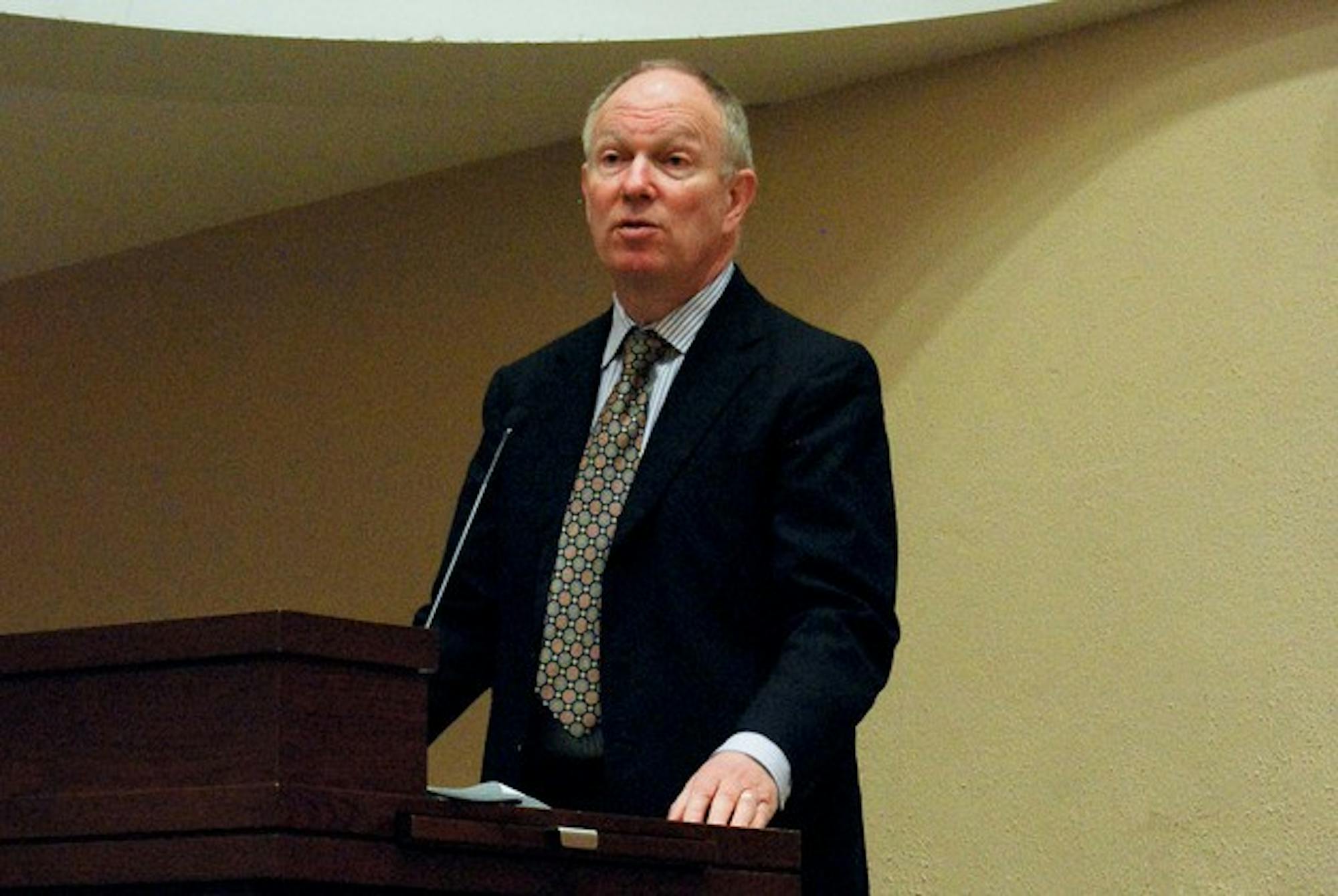Buruma opened the lecture, titled "Religion: Friend or Foe of Democracy?" by explaining that he would analyze the relationship between Islam and liberal democracies.
Buruma stressed that "Islamo-fascism" a connection of modern Islamic movements and European fascism has been transformed from a political debate to a moral one as part of a polarizing conversation that "sorts friends from enemies."
The relationship between religion and Western liberal democracy, particularly in Europe, is in many cases wrought with three problems violence, seemingly illiberal attitudes and tensions generated by immigration, Buruma said.
This change occurs as immigrants who are in many cases Muslim move to Europe in increasing numbers, he explained. This new population is often plagued with high unemployment and cultural and racial tensions, which result in escalated petty street crime, according to Buruma.
The second problem stems from the European perception that the customs, traditions and religious practices of the immigrant communities are illiberal, Buruma said. He cited the recent banning of the burqa in France as an example of the European view that Islamic traditions run contrary to Western democracy.
"What complicates this issue is that not only right-wing xenophobes denounce [Islamic] practices among Muslims, but also feminists and those who consider themselves progressives also denounce them," Buruma said.
Buruma cited the existence of the violent revolutionary movement within Islam, and its effects on the actions and opinions of European Muslims, as another issue that complicates the relationship between Western democracy and Islam.
"The violent religious ideological element in Islam is serious and cannot be minimized," Buruma said. Buruma argued that the religious zeal of many second-generation immigrants in Europe particularly men is not typically a result of religious extremism within their families. He cited the example of Mohammed Bouyeri, a Dutch-Moroccan Muslim, who murdered Dutch filmmaker Theo Van Gogh in 2004. Bouyeri did not come from an extremely religious family but had developed his Islamic zeal while in the Netherlands, according to Buruma.
"Radical Islam is totally untraditional," he said. "That's why it appeals to the second generation youth who feel in between the cultures of their parents and the European culture in which they live."
The ongoing debate regarding religious conflict should be framed between those who support peace and tolerance and those who subscribe to violent practices, rather than as European versus Islamic identity, Buruma said.
"It would be wrong to say that Islam is the source of this kind of revolutionary violence, but it certainly helps to give it teeth," Buruma said. "By seeing it as a war waged by Islam, you are alienating the very people you want on your side."
Buruma emphasized that the issues affecting the relationship between democracy and religion are largely societal and not purely religious. "I think it is very dangerous and distorting to see these problems as somehow all due to the same thing Islam," he said.
When discussing the existence of more pluralistic societies in Europe, Buruma argued that it is not the place of the government to "impose its views" on the people. Governments should instead create common laws that do not unfairly restrict citizens, he said.
"A liberal democracy can very easily live with all kinds of values as long as people who hold those values don't use violence or threaten to use violence," Buruma said. "Democracies must be tolerant of intolerance as long as [the intolerance] is expressed as views."
Having grown up with an atheist father and a mother from an "assimilated Jewish family who took pride in having the biggest Christmas tree," Buruma explained that neither religious conviction nor cultural abhorrence impacts his approach to these issues. Buruma whose lecture took place in Dartmouth Hall was awarded the Erasmus Prize in 2008 for his significant contributions to culture, society and social science in Europe.




